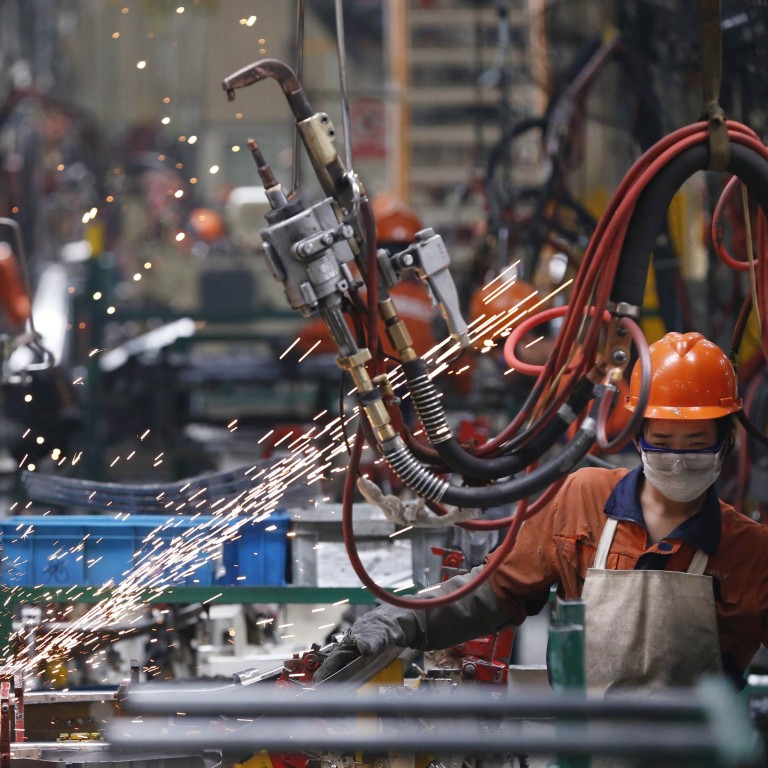
World Bank urges Beijing to phase out hard economic targets
Mainland faces little room to manoeuvre on policies as World Bank says expansion of 7pc may be needed next year to ensure job stability
Beijing should phase out hard economic targets to focus more on tackling its key structural reform challenges over the next few years, the World Bank said yesterday as it released its China economic update.
However, the World Bank also said economic growth of about 7 per cent might be needed next year to ensure job stability, compared with the 7.5 per cent official target for this year.
The comments highlight the lack of manoeuvring room Beijing has as it aims to curb pollution and excessive capacity and correct imbalances in resource allocation without bringing down the growth rate too drastically or disrupting the labour market.
The authorities "do have some policy space and policy buffers to meet an ambitious target for the next year", said Karlis Smits, a senior economist at the World Bank and the report's main author.
Total public debt was moderate, at 55.5 per cent of gross domestic product, while the mainland also had sizeable reserve buffers, the World Bank said. But such policy buffers should be reserved for the future and only used in the event of unexpected domestic or external economic shocks, it added.
"Conducting economic policy by setting a growth target per se would kind of undermine the transition to the new growth model", Smits said, as that would require more expansionary policies. "If there has to be a target, that is treated as an indicative target, not a hard target."
The World Bank recently cut the mainland's GDP growth forecast for this year to 7.4 per cent, while predicting average growth of just above 7 per cent next year and in 2016.
Third-quarter GDP growth fell to 7.3 per cent, a five-year low.
To stem a sharp downturn, Beijing has adopted targeted stimulus to boost growth this year. But some analysts say structural reforms, such as interest rate liberalisation, have been delayed.
"The key short-term policy challenge is to strengthen market discipline in the financial sector," said Chorching Goh, lead economist for China at the World Bank.
Beijing should put particular focus on land, capital and labour reforms, she said.
"Land reforms are likely to have the largest growth impact, but they are also the most complex," the World Bank said.
It said implementing reforms could "accelerate China's economic growth potential", while a lack of policy action could make a medium-term downturn "more severe".
"In a no-reform scenario, economic activity could start to stagnate as resource misallocation, particularly in the financial sector, would continue to undermine productivity of firms, strength of financial institutions and confidence of reforms," Smits said.
Data showed efforts to shift the economy's growth engine from investment and exports to domestic consumption had been far from successful.
The Westpac MNI China consumer sentiment index declined to a three-year low this month and has fallen 8.9 per cent since the start of the year, as consumers became more pessimistic about employment, the housing market and the state of their personal finances.
At a State Council meeting yesterday, Premier Li Keqiang rolled out new measures to bolster consumption in areas such as housing, online shopping, education and energy-saving products. The government also decided to open the banking card settlement market to both domestic and international players.
The growing pessimism on the outlook for jobs contradicts official data showing more than 10 million new jobs had been created by the end of last month.
According to World Bank calculations, exports contributed 2.3 percentage points to third-quarter GDP growth as investment cooled while consumption remained weak.

